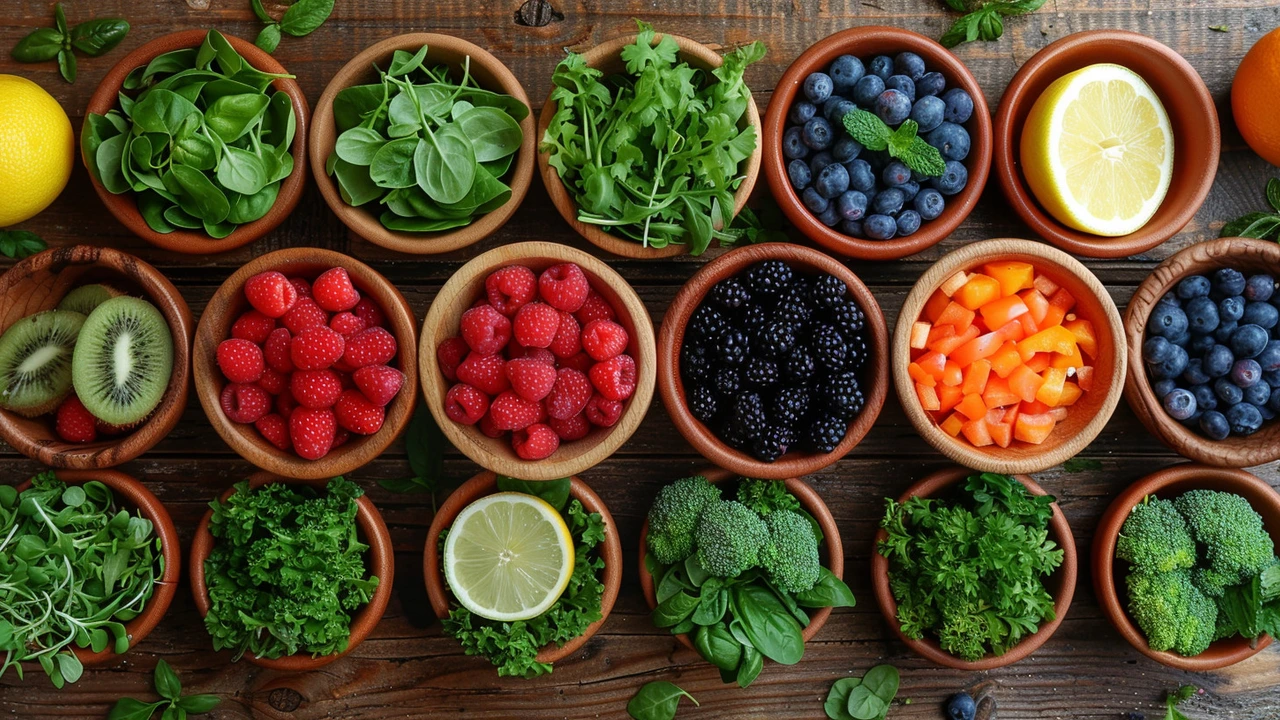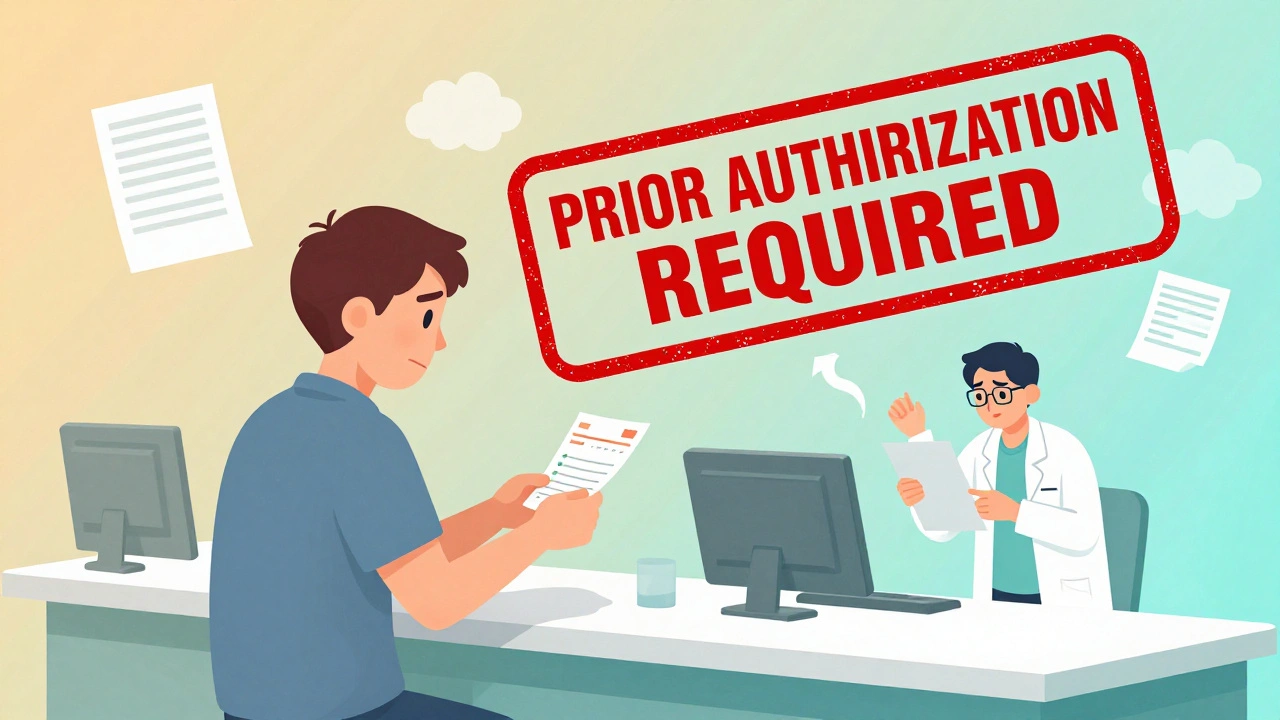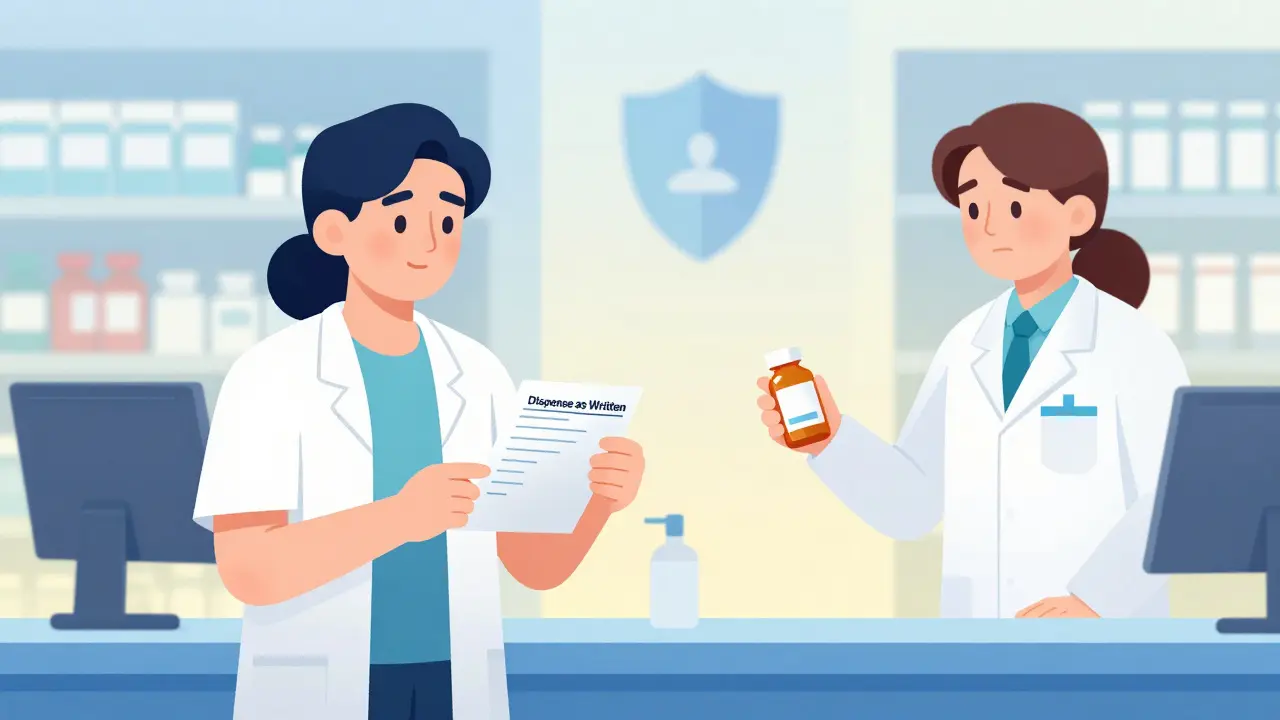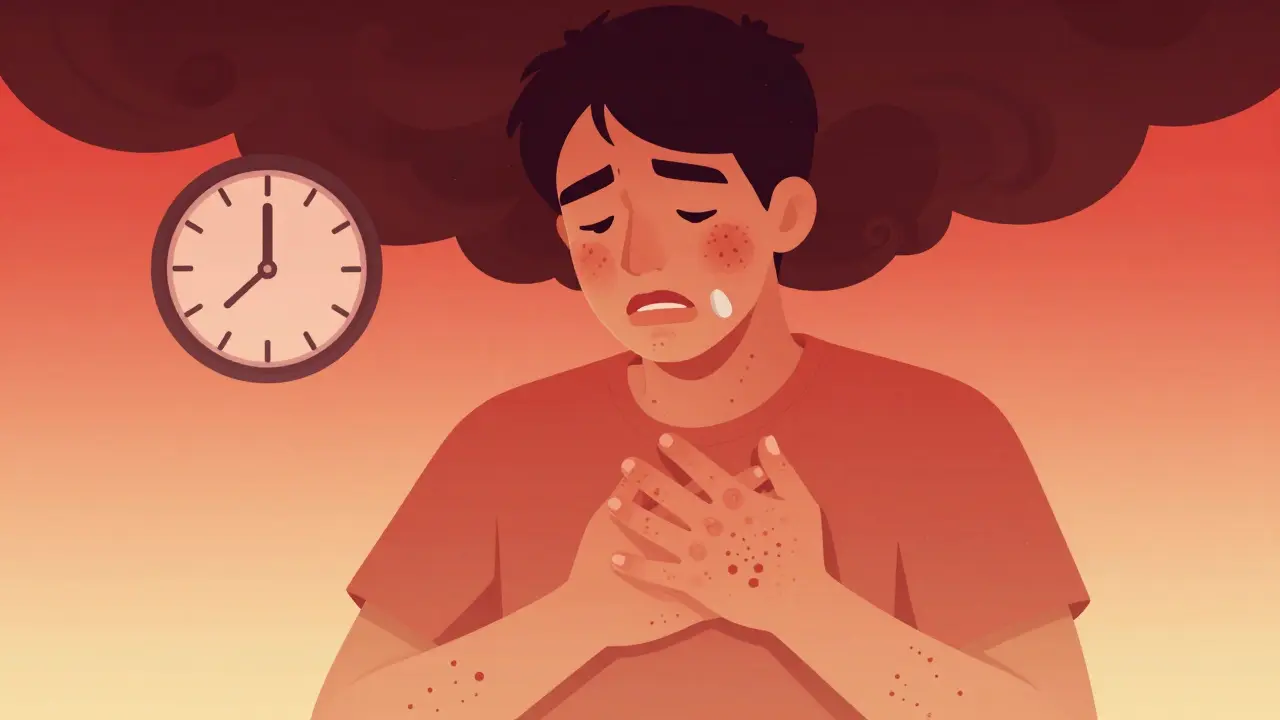
Warts are a common skin condition caused by the human papillomavirus (HPV). While many assume they’re just an annoying inconvenience, there’s much more to know about how to handle them.
Believe it or not, your diet plays a major part in both preventing and treating warts. What you eat can directly affect your skin’s health and your body’s ability to fend off these pesky growths.
Eating the right foods can boost your immune system, maintain healthy skin, and reduce your chances of getting warts. In the upcoming sections, we'll dive deeper into which foods you should include in your diet and what other natural remedies might help.
Stick around to learn how simple dietary changes and lifestyle tips can help you lead a wart-free life.
- Understanding Warts and Their Causes
- Immune-Boosting Foods for Wart Prevention
- Nutritional Remedies for Wart Treatment
- Lifestyle Tips for Maintaining Wart-Free Skin
Understanding Warts and Their Causes
Warts are small, grainy skin growths that frequently appear on your hands or feet, though they can occur in other places. They are triggered by the human papillomavirus (HPV), which has over 100 different strains. The virus causes a rapid growth of cells on the skin's outer layer. While common warts are usually harmless, they can be unsightly and sometimes painful.
The way HPV spreads is typically through skin-to-skin contact or through contact with surfaces exposed to the virus. For example, sharing towels or walking barefoot in communal areas like gym locker rooms can increase your risk of getting warts. Some strains of HPV are more likely to cause warts than others, and these strains thrive in warm, moist environments.
It's essential to note that not everyone exposed to HPV will develop warts. Why? It all comes down to the strength of your immune system. If your body's defense mechanism is robust, it can often clear the virus before you even notice any symptoms. However, those with weakened immune systems, such as children, teenagers, or individuals with certain health conditions, are more susceptible.
There are different types of warts, including common warts, plantar warts, flat warts, and genital warts. Each type appears in different areas of the body and varies in shape and size. For instance, plantar warts appear on the soles of the feet and can be quite painful due to the pressure from walking.
Preventing warts involves maintaining good hygiene, avoiding direct contact with warts on other people or yourself, and keeping your skin healthy and moisturized. Wearing flip-flops in communal showers and around pools is one simple yet effective measure to safeguard against contracting warts.
Several myths surround warts, such as the misconception that you can catch warts from handling frogs or toads. This belief is entirely unfounded, as warts are exclusively caused by the HPV virus and not by amphibians. Keeping informed about the real causes and prevention measures can help you avoid unnecessary worry.
"HPV is a common virus, and most people will get a strain of the virus at some point in their lives," says dermatology expert Dr. Sarah Taylor. "The key is to focus on boosting your immune system and maintaining skin health to reduce the risk of developing warts."
Warts are usually benign and may go away on their own, but they can persist for months or even years. If they become a persistent issue, consulting a healthcare provider for treatment options is advisable. Traditional treatments include salicylic acid application, cryotherapy (freezing them off), and laser treatments. However, these can sometimes have side effects and might not be suitable for everyone.
Immune-Boosting Foods for Wart Prevention
It’s no secret that a strong immune system is your best defense against many types of infections, including those pesky warts. Your diet plays a huge role in keeping your immune system in tip-top shape. By including immune-boosting foods in your daily meals, you can help your body fight off the human papillomavirus (HPV), which causes warts, more effectively.
One of the key vitamins for a robust immune system is vitamin C. This vitamin is known for its antioxidant properties, which protect your cells from damage. Citrus fruits like oranges, lemons, and grapefruits are packed with vitamin C. Other great sources include strawberries, kiwi, and broccoli. Make sure to eat these foods regularly to get the full immunity-boosting benefits.
Zinc is another crucial nutrient that helps your immune system work properly. It promotes the production of white blood cells, which are essential in fighting infections. You can find zinc in foods like nuts, seeds, beans, and whole grains. If you prefer animal-based sources, oysters and lean meats are excellent options.
Vitamin A is vital for maintaining the health of your skin and mucous membranes, which act as a barrier to infections. Foods rich in vitamin A include carrots, sweet potatoes, and leafy green vegetables. Adding these to your diet can ensure your skin stays strong and healthy, making it more resistant to papillomavirus.
Probiotics are beneficial bacteria that support your gut health and, in turn, your immune system. Yogurt, kefir, and fermented foods like sauerkraut and kimchi are rich in probiotics. Including these foods in your diet can help balance your gut flora and improve your body's overall immunity.
"Nutrition plays a critical role in immunity. A well-balanced diet provides essential nutrients that are crucial for maintaining a healthy immune system." - Harvard T.H. Chan School of Public Health
It’s also important to stay hydrated. Water helps your body produce lymph, which is a fluid that circulates white blood cells and nutrients to your tissues. Drinking plenty of water keeps your immune system functioning efficiently.
While focusing on what to eat, don't forget to cut down on foods that can weaken your immune system. Processed foods, sugary snacks, and excessive alcohol can all have negative impacts on your immunity. Instead, aim to eat a diet rich in whole foods, including plenty of fruits, vegetables, lean proteins, and whole grains.
Immune-Boosting Foods List
- Citrus fruits (oranges, lemons, grapefruit)
- Strawberries, kiwi
- Broccoli, sweet potatoes
- Nuts, seeds, beans
- Oysters, lean meats
- Leafy green vegetables (spinach, kale)
- Yogurt, kefir, sauerkraut, kimchi
- Plenty of water
Incorporating these immune-boosting foods into your diet can help you maintain healthy skin and reduce the likelihood of developing warts. It's impressive how much of an effect diet can have on your skin health. Eating the right foods is an easy and natural way to support your immune system and keep those warts at bay.
Nutritional Remedies for Wart Treatment
When it comes to treating warts, what you put inside your body can be as important as what you put on your skin. Certain nutrients are known to help boost your immune system and fight off viruses, including the ones that cause warts. Incorporating these immune-boosting foods into your diet can support your body in battling warts from the inside out.
Vitamin A is a critical nutrient in maintaining skin health and supporting the immune system. This vitamin can be found in foods like carrots, sweet potatoes, and dark leafy greens. Most nutritionists agree that beta-carotene, which your body converts into vitamin A, is vital for promoting healthy skin cell turnover and potentially reducing the occurrence of warts.
Vitamin C is another powerful nutrient. It is well-known for its immune-boosting properties. Foods rich in vitamin C, such as oranges, strawberries, and bell peppers, can help your body fend off infections, thus reducing the likelihood of wart formation. Consuming a diet high in vitamin C may also help speed up the healing process if you already have warts.
Garlic is another incredible food known for its antiviral and immune-strengthening properties. Eating raw garlic or adding it to your meals can help your body fight off the human papillomavirus responsible for warts. Some holistic practitioners even recommend applying crushed garlic directly to warts for its antiviral benefits.
Zinc is a trace mineral essential for immune function. Studies have shown that zinc deficiency can weaken the immune system, making you more prone to viral infections, including warts. Foods like pumpkin seeds, chickpeas, and legumes are rich in zinc and can be beneficial for wart prevention and treatment. Ensuring you get enough zinc in your diet can significantly impact your skin health.
Probiotics are good bacteria that keep your gut healthy. A healthy gut is crucial because at least 70% of your immune system resides in your gut. Including probiotic-rich foods like yogurt, kefir, and sauerkraut can help maintain a strong immune system, thereby keeping wart-causing viruses at bay. Probiotics play an essential role in maintaining a balanced microbiome, which directly influences your body's ability to fight off infections.
A study published in the Journal of Clinical Investigation highlighted the role of diet in managing skin conditions.
"The link between diet and skin health is more profound than we previously thought. Nutrient-rich foods can significantly improve the body’s ability to combat viruses, including those causing warts," says Dr. Elizabeth Thomas, a leading dermatologist.Balancing your diet with these nutritional elements can make a world of difference in wart treatment.
Don't forget to drink plenty of water. Staying hydrated aids in flushing out toxins and supports overall skin health. Water is crucial for cellular functions and helps to keep your skin moisturized and resilient against infections.
Lifestyle Tips for Maintaining Wart-Free Skin
Keeping warts at bay is not just about what you eat; your daily habits and lifestyle choices matter a lot too. Here are some effective tips to help you maintain healthy, wart-free skin.
Start by practicing good hygiene. Wash your hands regularly, especially after coming into contact with public surfaces. The HPV virus that causes warts is highly contagious and can be picked up easily from places like gym equipment, doorknobs, and shared towels. Using hand sanitizer can also help reduce the risk of infection when soap and water aren’t readily available.
Consider boosting your body’s immunity through regular exercise. Physical activity helps improve circulation, which in turn strengthens your immune system, making it easier for your body to fight off infections. Aim to include at least 30 minutes of moderate exercise into your daily routine, whether it’s walking, jogging, cycling, or any activity you enjoy.
Stress management is also crucial. Chronic stress can weaken your immune system, making you more susceptible to infections, including HPV. Incorporate stress-relief practices into your daily life, such as meditation, yoga, deep breathing exercises, or even hobbies that you find relaxing. Spending time in nature, connecting with loved ones, and getting plenty of sleep are other ways to reduce stress and keep your immune system strong.
According to Dr. Sarah Williams, a dermatologist, “Chronic stress can lower your immune defenses, making you more vulnerable to infections like warts. Finding effective ways to manage stress is essential for maintaining healthy skin.”
Avoid habits that could damage your skin. For example, biting your nails or picking at hangnails can create tiny cuts where the HPV virus can enter. Make an effort to keep your nails trimmed and use a moisturizing hand lotion to prevent cracked, dry skin. Additionally, never share personal items such as razors, towels, or nail clippers, as these can easily transfer the virus.
Wearing protective footwear in communal areas is another key habit. Places like swimming pools, locker rooms, and public showers are hotspots for the virus. By wearing flip-flops or water shoes, you reduce the risk of the virus coming into contact with your feet.
Diet and Supplementation
Alongside these lifestyle tips, maintain a balanced diet rich in vitamins and minerals. Foods high in Vitamin C, Vitamin E, and zinc can significantly bolster your immune system. These nutrients are found in fruits like oranges and strawberries, vegetables like spinach and broccoli, and nuts and seeds. For those who struggle to get enough from diet alone, supplementation might be necessary, but always consult a healthcare provider first.
Lastly, stay hydrated. Water is essential for maintaining healthy skin and supporting your immune function. Aim for at least eight glasses of water a day, and consider reducing your intake of sugary and caffeinated beverages, which can dehydrate you.
By following these tips, you can create a lifestyle that not only helps prevent warts but also promotes general well-being. A combination of good hygiene, regular exercise, stress management, and proper nutrition can work wonders for your skin and your overall health.






Scott Horvath
May 17, 2024 AT 08:23jerry woo
May 17, 2024 AT 17:23Kimberly Ford
May 18, 2024 AT 09:59Kshitij Nim
May 19, 2024 AT 03:12matt tricarico
May 19, 2024 AT 13:58Patrick Ezebube
May 20, 2024 AT 08:59Kathryn Conant
May 21, 2024 AT 07:58Rachel Marco-Havens
May 21, 2024 AT 16:49j jon
May 21, 2024 AT 19:31Melvin Thoede
May 22, 2024 AT 07:00Armando Rodriguez
May 22, 2024 AT 17:27Ash Damle
May 23, 2024 AT 13:10Jules Tompkins
May 23, 2024 AT 20:32Jillian Fisher
May 24, 2024 AT 08:35Kevin Ouellette
May 24, 2024 AT 19:55Sabrina Bergas
May 25, 2024 AT 19:10Suzanne Lucas
May 26, 2024 AT 10:03jennifer sizemore
May 27, 2024 AT 03:47